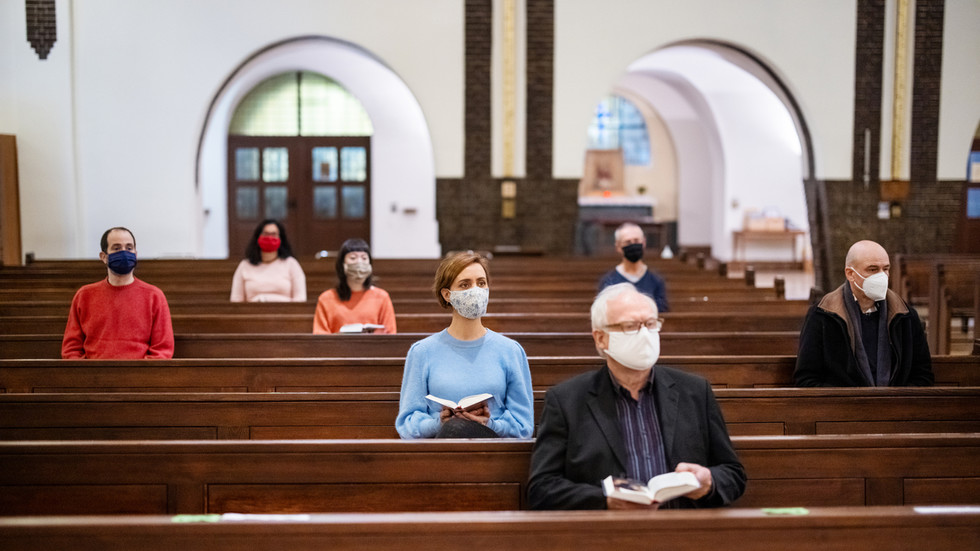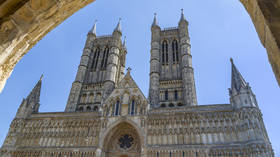
Church attendance and belief in God are at historic lows in the US, surveys show

© Getty Images / Luis Alvarez
Fewer Americans are attending church than ever, according to recent polls. The surveys referred to in several US media reports on Wednesday show that a combination of pandemic lockdowns and generational shifts in attitudes has the once solidly Christian nation questioning its relationship with organized religion.
More than four in five Americans (81%) believe in God, according to a Gallup poll conducted earlier this year. While that’s still a sizable majority, it’s also the lowest percentage since the pollster began asking the question back in 1944, when 98% of Americans espoused belief.
Similarly, the number of Americans who belong to a church, mosque, or synagogue is at an all-time low, comprising a minority of the population (47%) for the first time last year, according to Gallup. Driven by a rise in those claiming no religious affiliation, a group that has rivaled Catholics or evangelical Christians in size since before the Covid-19 pandemic, the decline is likely to continue, the pollster suggests.

Read more
Changing social attitudes aren’t solely responsible, however. Church attendance plunged 45% from 2020 to February 2022, according to an analysis by ABC News, as most state governments shut down in-person gatherings for Covid-19. While some churches attempted to hold virtual services, or even had the faithful assemble in their parked cars outside, their numbers haven’t quite recovered – only about one in five (22%) Protestant pastors told Lifeway that attendance at their services was close to the January 2020 numbers.
While younger people are more likely to identify as non-religious than their elders, Americans with a college education are more likely to be members of a church, synagogue, or mosque, according to research conducted last year by the Survey Center on American Life. This is part of a general trend toward social isolation among the less educated, who, the pollster found, have fewer close friends, less social support, and are less likely to be married.
Not all religious groups have seen their numbers decline recently, however. So-called non-denominational churches – Protestants who don’t belong to established groups such as Methodists or Southern Baptists – have grown by 9,000 in the last decade, according to the US Religion Census, and their adherents now number a respective five and six times as many as belong to the Presbyterian and Episcopalian churches.




